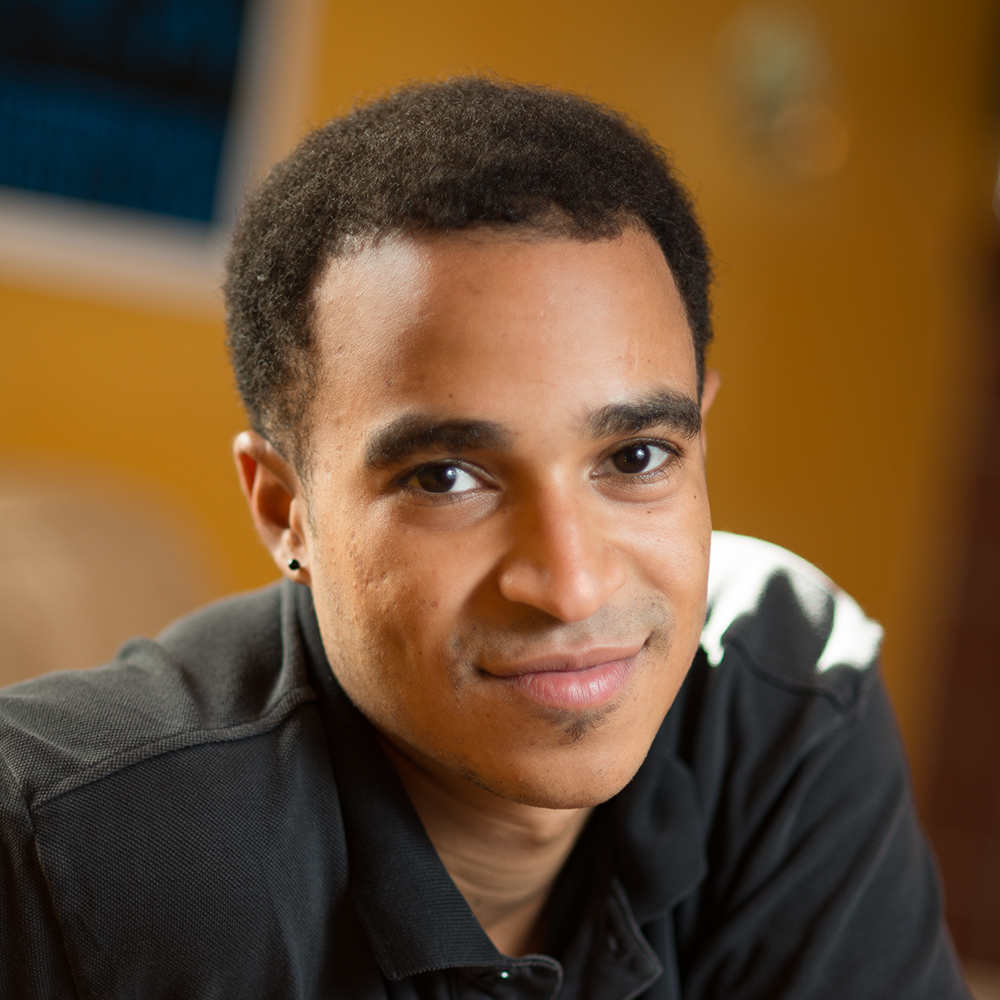As a freshman, Kareem Alston discovered a passion for exploring ideas about hip-hop culture and hip-hop pedagogies while serving as an undergraduate fellow at the Institute for Diversity in the Arts at Stanford.

Senior Kareem Alston. (Image credit: L.A. Cicero)
It led to his choice of major – African and African American Studies, with a concentration in identity, diversity and aesthetics. It also led him to Cape Town, South Africa, for a quarter through Stanford’s Bing Overseas Studies Program.
That experience inspired his honors thesis: a research essay and short video documentary investigating how Cape Town’s hip-hop culture counteracts the legacy of apartheid.
With his interest in the academic study of hip-hop culture, Alston was a perfect fit for a research project that the Institute for Diversity in the Arts (IDA) launched in collaboration with the Hip-Hop Education Center in New York City. IDA is an interdisciplinary program in the humanities that involves students in the study of culture, identity and diversity through artistic expression.
The research project was designed to study the secrets to success of six exemplary organizations in the United States that use hip-hop culture – including spoken word poetry, music, dance and theater – to inspire young people and transform their lives. The research required asking probing questions of the leaders of the groups.
“Having a conversation with someone in the context of a research project is not easy, especially when it involves talking about important and/or sensitive information,” said Alston, one of six undergraduates who took part in the project.
Alston, who grew up in Harlem and once studied dance, chose Dance Theatre Etcetera, a 20-year-old arts organization in Brooklyn, New York, as his focus. The group, which is devoted to “building a more just and joyful world through the arts,” offers arts education programs in public schools, and arts training programs – such as Hip Hop Youth Theatre – in the community.
Having a conversation with someone in the context of a research project is not easy, especially when it involves talking about important and/or sensitive information.
Kareem Alston
To prepare for his conversation with Dance Theatre Etcetera’s director, Alston developed research questions with an eye toward digging deep into what makes the organization successful in its mission.
In his report, Dance Theater Etcetera: Changing Schools One Artist at a Time, Alston identified insights into the organization’s effectiveness that could help other groups develop successful programs.
- Artists work much more effectively when they have autonomy in their teaching practices within the school.
- When schools focus on test scores rather than the specific cultural needs of the students, it is hard to incorporate the teaching pedagogies of community-based arts organizations into the curriculum.
- Successful partnerships between community arts organizations and schools require a long-term commitment by the organization.
He also identified key questions to guide new research in the field.
Alston said the interview style he learned for the project – known as qualitative interviewing – is an invaluable tool.
“During this project, I learned that I’m good at qualitative interviewing,” said Alston, who is now a master’s student in African studies at Stanford. “It is a skill I will take with me wherever I go.”
Casey Wong, the research project’s assistant investigator and a doctoral student at Stanford Graduate School of Education, said qualitative data is critical in assessing how hip-hop is transforming the lives of young people.
“We need to consider the voices, opinions and wisdom of leaders in the field,” said Wong, who taught Alston and the other students the theory and practice of qualitative interviewing during a 10-week course.
“Kareem and the other members of the undergraduate research team produced reports in conversation with some of the top leaders in the country,” he said. “These reports are going to be invaluable for scholars and practitioners alike as they seek to understand the nuances and subtle workings of effective community-based hip-hop organizations.”
